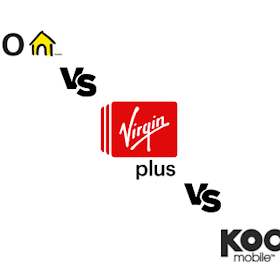
Article Summary
Phone scams have become more sophisticated and dangerous for those who have their identity stolen. Even WhistleOut isn't immune from the criminal efforts of scam groups. You should take steps to protect your identity and educate yourself about common scams in Canada. If you've been contacted by a suspected fraudster, immediately follow the steps below to prevent identity theft.
I've Been Scammed. What Do I Do First?
If you’ve been scammed or believe you may have been a victim of fraud, follow these steps immediately:
- Stop any further communication with the scammer
- Write down all information you shared, no matter how insignificant. Collect all emails and documents. Write down details of any phone calls including time, date, phone number and the length of the call. The Federal Competition Bureau has a full list of potential evidence for you to collect.
- Contact your local police. Once you make a report, you’ll receive a file number. Report any new suspicious activity on your accounts using that same file number.
- Notify your financial institution(s). Even if you haven’t shared bank information, sophisticated fraudsters may attempt to use the personal information you provided.
- Contact relevant companies discussed by the scammer. For example, if the topic was cell phone plans, contact your mobile provider to ensure they didn’t register any recent changes or purchases. You may need the file number you received from the authorities.
For more information, visit the Canadian Anti-Fraud Centre web site and read more about what to do if you’re a victim.
Did WhistleOut Contact Me?
WhistleOut does not make unsolicited calls to help Canadians find a new cell phone plan. Our business model depends on wireless consumers coming to us. If you are contacted by someone claiming to be from WhistleOut and offers to help you find a cheaper plan. That is a scam.
WhistleOut Canada adheres to CASL Anti-Spam laws, and we will never call Canadian cell phone customers unexpectedly. If you believe you’ve been contacted by a fraudster claiming to be from WhistleOut, please follow the steps above and contact us.
Scam Group Posing as WhistleOut Canada
We’ve been informed about a scam where the caller claims to be from WhistleOut Canada. The fraudster may ask for some personal information (name, phone number, carrier info and credit card) in order to negotiate a better price on your monthly bill.
Remember that scammers are
only interested in stealing from you.
The fraudster may claim that you will get a good deal on a new phone or monthly plan. However, by the end of the transaction your carrier has charged you for new smartphones that are in the possession of the scammer. The best action you can take is to hang up immediately. If you share any personal information like your name, phone number or wireless provider, then follow our steps above to report the incident.

Prevention
A little preparation now can save you thousands of dollars later if someone targets you for identity theft. Reading guides – like this one – makes it more difficult for fraudsters to fool you. Here are some more tricks for you to use.
Identity Theft Insurance
Many financial institutions offer Identity Theft Insurance on bank accounts and credit cards. You may also have access to this option through your workplace insurance plan. If the worst happens, you’ll immediately receive access to services that make it easier to get your life back.
ID Restoration Services are covered by Identity Theft Insurance. Incidental expenses including out of pocket costs and wages if you need to take time off work may also be covered. A representative will guide you through the process of getting your identity back, and form letters can be supplied to contact companies that have sold goods to the scammers in your name.
Don't Share Personal Information
Scams are difficult (or even impossible) to complete when the fraudster doesn’t get sufficient information about you. It’s important that you never share any personally identifiable data with an untrusted source, including;
- your name,
- address,
- birth date,
- phone number,
- Social Insurance Number (SIN).
This all might seem obvious, but you might share personal information without even knowing it. Some requests for information can seem trivial, but your answers might be used when a fraudster doesn’t have your password. You should never share other any personally identifiable information no matter how minor. For example,
- where you were born,
- mother's maiden name
- first pet,
- favourite sports team,
- first car,
- street you grew up on.
Even an online survey like "Which Character from Game of Thrones Are You?" asks questions that appear safe, but the personal data you submit can be harvested by scammers. Your bank, phone and credit card accounts may then be attacked without any further involvement on your part.
Just Say "No" If You're Being Rushed
Many organized scam groups depend on an emotional response. Fraudsters will use high-pressure techniques including the threat of arrest to prevent you from thinking things through. Even a moment of weakness on your part may reveal some usable piece of personal information. Just say "no" and hang up.
Do Your Research on the Company
If it’s a reputable business, they’ll be around long enough that this "once in a lifetime" opportunity will come again. If they’re a fly-by-night company or a scammer posing as a reputable business, then you’ve just saved yourself hundreds or thousands of dollars by saying "no." Visit the Canadian Anti-Fraud Centre’s page, "Protect yourself from scams and fraud" for more ways to keep yourself safe.
Add Your Information to the National Do Not Call List
You have certain rights as a Canadian telecom customer. One of those rights is to have your name and phone number removed from telemarketing call lists upon request. Companies with whom you’ve never done business must adhere to the National Do Not Call List (DNCL).
Once you’ve added your phone number, all unsolicited telemarketing calls must stop within 31 days and your number will remain on the list for three years. There are specific businesses and organizations that can continue to contact you by phone, and the DNCL only works for companies that follow the rules. However, adding your name to the National Do Not Call List can help you quickly decide if an unsolicited call is a scam.
Block Spam and Telemarketers
Many scams call from the same phone numbers, so your carrier and smartphone may be able to filter some of them out. Look through the settings in your dialer app on your Android or iPhone smartphone. Some Android smartphones support Google Assistant Call Screening. The Google Assistant voice answers your call and transcribes the conversation onto your screen. This software is still in beta (i.e. it’s not final yet), and talk time is still counted if you’re not on an unlimited minutes plan.

What Other Scams Should I Watch Out For?
Scams on cell phones and mobile plans have become more sophisticated over the years. Some require you to share personal information, use access to your smartphone or computer, and others don’t need any participation from you at all. We’ve listed some common scams below, but you can find a comprehensive list on the Canadian Anti-Fraud Centre web site run by the government of Canada.
SIM Card Swap and Port Out Scams
The SIM card is a chip inside your cell phone that tells it how to connect to cell phone towers. It also helps the cell phone company identify your phone. Scammers contact your mobile provider while claiming to be you, then connect your account (and your phone number) to a new SIM card. They can use that SIM card to access your email, bank accounts, and more – even accounts with two-factor authentication become vulnerable!
Robocalls
Whether the voice sounds like a robot or a real person, the goal is the same: convince you that you (or a loved one) is in trouble and you need to act quickly. The caller might claim to be from the CRA, police, Netflix, Microsoft or any other company. The fraudster might claim that your credit card is invalid, you have a large sum of back taxes to pay, or there is a warrant out for your arrest. None of these are reasons are why someone might contact you by phone first.
Hang up immediately. Don’t try to confirm that they have the right person or what information they have about you. Speak as little as possible; new fraud systems create a voice-print from your speech (like a fingerprint) that they use to scam others. It’s scary stuff, but there’s one rule to remember:
If you’re being rushed into something,
that’s even more reason to slow down and think.
A decision made in a panic can be a bad one. Targets often end up feeling embarrassed by the deception, so many victims never report the incident to the police. It’s important to remember that the scammers should be ashamed of what they do, not you. If you think you could be the victim of a robocall scam, follow the steps at the top to protect yourself immediately.
Free Vacation Offer
After picking up the phone, you’re notified that you won a free (or discounted) vacation from a major hotel or airline brand. The scammer may even identify you by name in order convince you that you entered a contest for this prize. Just by confirming your personal information, you’ve already given them too much. They will continue by asking for more personal information and a payment by credit card as a deposit or to pay taxes. Canadians do not pay tax on prize winnings, so that will quickly confirm that this is a scam. Hang up immediately.
Tech Support Scam
This scam starts with a phone call by a fraudster claiming to be a tech support representative from Microsoft, Apple, or some other computer company. You’re alerted that there is a virus on your computer. The next step could include paying for virus removal or downloading and installing software that gives the fraudster full access to your computer. Don’t fall for it. Hang up and run an anti-virus check yourself.
More Resources for Canadians
Bell Canada:
- How to Protect Yourself from Telecom Fraud
- How to Stop Telemarketing Calls
- How to Use the Bell Anti-SPAM Service
Rogers:
- Protecting Yourself from Identity Theft
- How to Spot a Telemarketing Scam
- FAQs about Universal Call Blocking
Telus Statement on Fraud Protection:
We take the privacy and security of our customers very seriously. If any TELUS customers feel they have been the victim of a scam, they can report it to the RCMP Anti-Fraud Centre, either online or at 1-888-495-8501, and to the TELUS Fraud team, at [email protected].
We recently launched TELUS Call Control, a free feature now available to all home phone and wireless customers that blocks the majority of autodialed calls.
We also offer tools on our website for all Canadians called TELUS Wise, a free educational program that focuses on Internet and smartphone safety and security.
Related Articles
Related Topics
Bell Telus Rogers identity theft phone scam fraud SIM hijacking robocallsPopular Topics
Android Apple iPhone Samsung Google iOS Cell phone plans Rogers Telus BellFind Better Phones and Plans
Hundreds of cell phone plans unpacked. All the facts. No surprises.






































